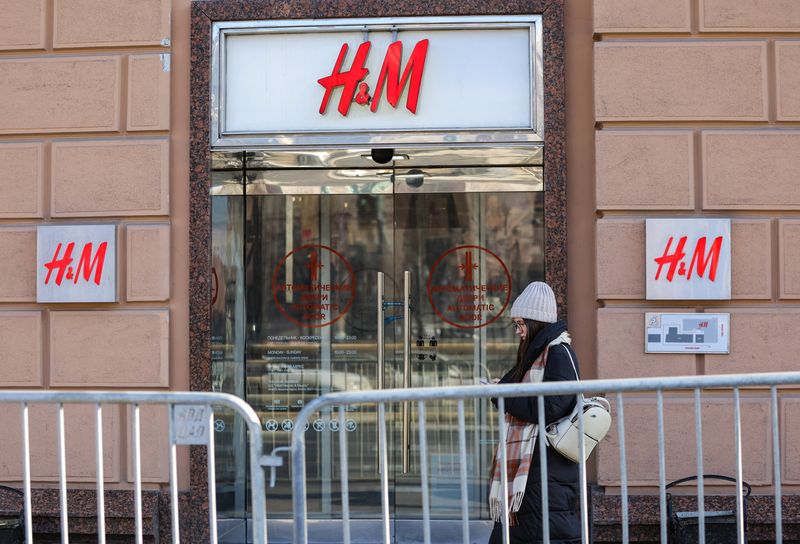(Reuters) – Russia has authorised retailers to import products from abroad without the trademark owner’s permission, Prime Minister Mikhail Mishustin said on Wednesday, after global brands halted sales or stopped exports over Moscow’s military campaign in Ukraine.
Russia’s retail sector has been upended by Western economic sanctions and decisions by firms such as H&M, Apple and Nike to curb their activity in Russia.
Speaking at a televised government meeting, Mishustin said “parallel imports” were needed to ensure that certain goods could continue to be shipped to Russia.
“This approach will guarantee the shipment of goods to our country, … in spite of the unfriendly actions of foreign politicians,” he said.
Which goods can be imported to Russia in this way will be determined by the Ministry of Industry and Trade, Mishustin added.
The Federal Anti-Monopoly Service (FAS), which had prepared draft regulations on parallel imports, said the measure “will develop competition between brands through an increase in the number of businesses that import goods to Russia, which will lead to a decrease in retail prices for these goods”.
Russia, which faces its deepest economic crisis in more than two decades owing to an unprecedented barrage of Western sanctions over the Ukraine conflict, has proposed a raft of support measures to buttress its economy.
Moscow sent tens of thousands of troops into Ukraine on Feb. 24 in what it called a special operation to degrade its southern neighbour’s military capabilities and root out people it called dangerous nationalists.
Ukrainian forces have mounted stiff resistance, and the West hopes the sanctions it has imposed will force Russia to withdraw.
(Reporting by Reuters; Editing by Alexandra Hudson)
